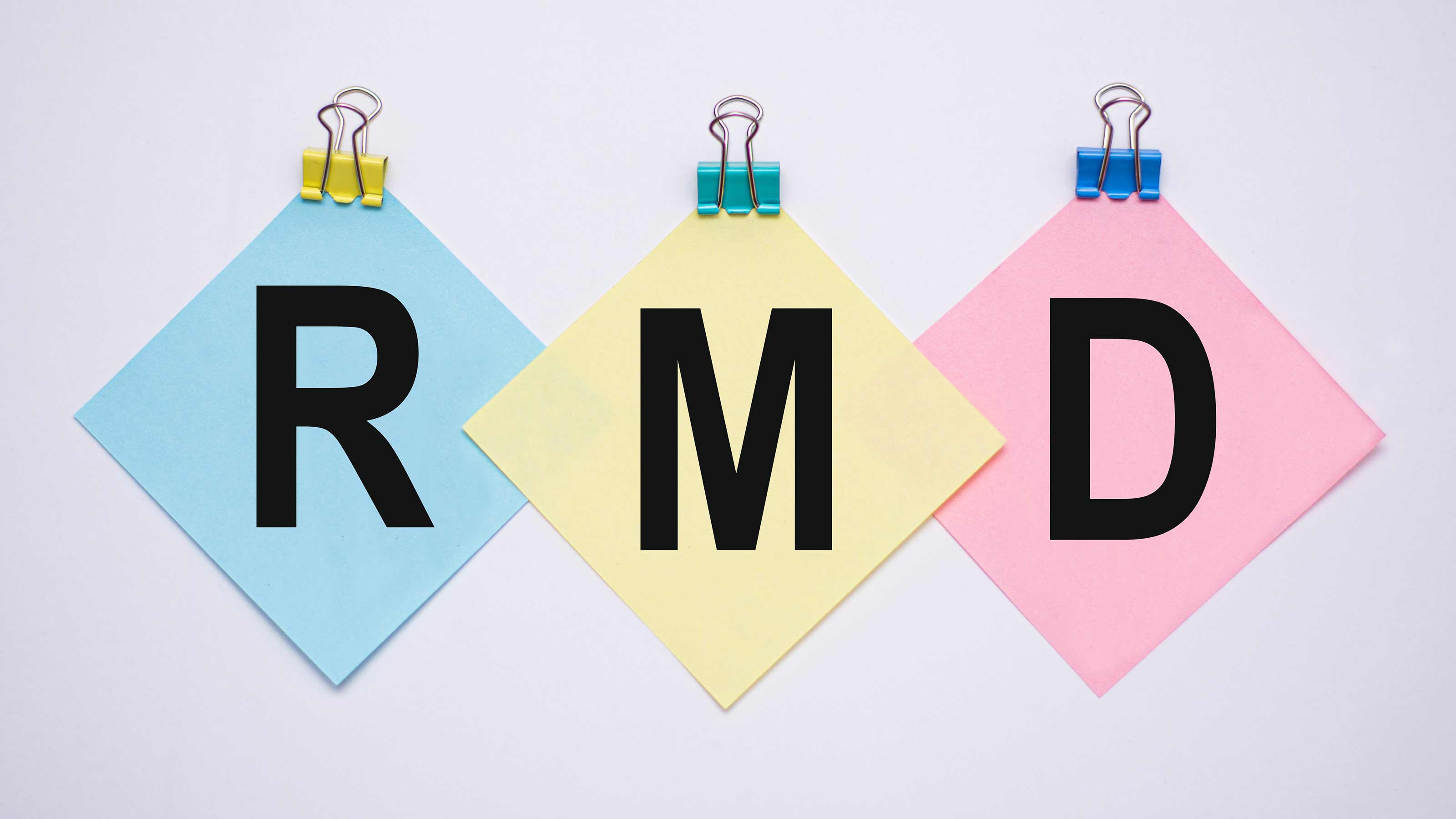Making the Most of a Health Savings Account Once You Turn Age 65
You’ll face a stiff penalty and taxes if you tap your health savings account for non-medical expenses before the age of 65. After that, the rules change.

Profit and prosper with the best of Kiplinger's advice on investing, taxes, retirement, personal finance and much more. Delivered daily. Enter your email in the box and click Sign Me Up.
You are now subscribed
Your newsletter sign-up was successful
Want to add more newsletters?

Delivered daily
Kiplinger Today
Profit and prosper with the best of Kiplinger's advice on investing, taxes, retirement, personal finance and much more delivered daily. Smart money moves start here.

Sent five days a week
Kiplinger A Step Ahead
Get practical help to make better financial decisions in your everyday life, from spending to savings on top deals.

Delivered daily
Kiplinger Closing Bell
Get today's biggest financial and investing headlines delivered to your inbox every day the U.S. stock market is open.

Sent twice a week
Kiplinger Adviser Intel
Financial pros across the country share best practices and fresh tactics to preserve and grow your wealth.

Delivered weekly
Kiplinger Tax Tips
Trim your federal and state tax bills with practical tax-planning and tax-cutting strategies.

Sent twice a week
Kiplinger Retirement Tips
Your twice-a-week guide to planning and enjoying a financially secure and richly rewarding retirement

Sent bimonthly.
Kiplinger Adviser Angle
Insights for advisers, wealth managers and other financial professionals.

Sent twice a week
Kiplinger Investing Weekly
Your twice-a-week roundup of promising stocks, funds, companies and industries you should consider, ones you should avoid, and why.

Sent weekly for six weeks
Kiplinger Invest for Retirement
Your step-by-step six-part series on how to invest for retirement, from devising a successful strategy to exactly which investments to choose.
Question: Does the penalty for using health savings account money for non-medical expenses disappear entirely at age 65? Does that mean I could withdraw the money after age 65 for a vacation and just pay taxes on the money, like I would with a 401(k)?
Answer: Yes to both questions. You’ll have to pay a 20% penalty plus income taxes if you withdraw money from an HSA for non-qualified expenses before age 65. But the penalty disappears at 65, and you’ll just have to pay taxes on the withdrawal if you use the money for anything other than eligible medical expenses at that point—similar to the tax deferral of a 401(k).
But you may be able to do even better. After age 65, you can use HSA money tax-free for several extra expenses, such as paying your monthly premiums for Medicare Part B and Part D and Medicare Advantage plans. If you have your Medicare premiums paid automatically from your Social Security benefits, you can withdraw the money tax-free from the HSA to reimburse yourself for those expenses. And you can continue to use HSA money tax-free to pay your out-of-pocket costs for medical care and prescription drugs, dental and vision care, a portion of long-term-care insurance premiums based on your age (up to $4,220 in 2019 for people ages 61 through 70, for example) and other eligible expenses. For more information about HSA-eligible expenses, see IRS Publication 969, Health Savings Accounts.
From just $107.88 $24.99 for Kiplinger Personal Finance
Become a smarter, better informed investor. Subscribe from just $107.88 $24.99, plus get up to 4 Special Issues

Sign up for Kiplinger’s Free Newsletters
Profit and prosper with the best of expert advice on investing, taxes, retirement, personal finance and more - straight to your e-mail.
Profit and prosper with the best of expert advice - straight to your e-mail.
Plus, there’s an interesting nuance to the law that lets you withdraw money tax-free from an HSA to recoup payments for any eligible medical expenses incurred since you opened the HSA, even if the reimbursement is years in the future. That means if you paid cash for any eligible medical expenses after you established your HSA, rather than tapping the account, you can let the money grow tax-deferred in the HSA and then withdraw it tax-free at any time to recoup your costs. “It’s important for consumers to keep their receipts for their qualified HSA expenses,” says Steve Auerbach, CEO of Alegeus, which provides technology for HSAs.
Many health plans and HSA administrators provide web tools to help you track your bills for qualified medical expenses and note how you paid those bills.
Profit and prosper with the best of Kiplinger's advice on investing, taxes, retirement, personal finance and much more. Delivered daily. Enter your email in the box and click Sign Me Up.

As the "Ask Kim" columnist for Kiplinger's Personal Finance, Lankford receives hundreds of personal finance questions from readers every month. She is the author of Rescue Your Financial Life (McGraw-Hill, 2003), The Insurance Maze: How You Can Save Money on Insurance -- and Still Get the Coverage You Need (Kaplan, 2006), Kiplinger's Ask Kim for Money Smart Solutions (Kaplan, 2007) and The Kiplinger/BBB Personal Finance Guide for Military Families. She is frequently featured as a financial expert on television and radio, including NBC's Today Show, CNN, CNBC and National Public Radio.
-
 Dow Leads in Mixed Session on Amgen Earnings: Stock Market Today
Dow Leads in Mixed Session on Amgen Earnings: Stock Market TodayThe rest of Wall Street struggled as Advanced Micro Devices earnings caused a chip-stock sell-off.
-
 How to Watch the 2026 Winter Olympics Without Overpaying
How to Watch the 2026 Winter Olympics Without OverpayingHere’s how to stream the 2026 Winter Olympics live, including low-cost viewing options, Peacock access and ways to catch your favorite athletes and events from anywhere.
-
 Here’s How to Stream the Super Bowl for Less
Here’s How to Stream the Super Bowl for LessWe'll show you the least expensive ways to stream football's biggest event.
-
 What Does Medicare Not Cover? Eight Things You Should Know
What Does Medicare Not Cover? Eight Things You Should KnowMedicare Part A and Part B leave gaps in your healthcare coverage. But Medicare Advantage has problems, too.
-
 15 Reasons You'll Regret an RV in Retirement
15 Reasons You'll Regret an RV in RetirementMaking Your Money Last Here's why you might regret an RV in retirement. RV-savvy retirees talk about the downsides of spending retirement in a motorhome, travel trailer, fifth wheel, or other recreational vehicle.
-
 Estate Planning Checklist: 13 Smart Moves
Estate Planning Checklist: 13 Smart Movesretirement Follow this estate planning checklist for you (and your heirs) to hold on to more of your hard-earned money.
-
 Should You Rent in Retirement?
Should You Rent in Retirement?Making Your Money Last Renting isn't right for all retirees, but it does offer flexibility, and it frees up cash.
-
 6 RMD Changes We Could See This Year
6 RMD Changes We Could See This YearMaking Your Money Last Congress is considering two bills that would make major changes to required minimum distributions. Could your RMDs be affected?
-
 A Kiplinger-ATHENE Poll: Retirees Are Worried About Money
A Kiplinger-ATHENE Poll: Retirees Are Worried About MoneyMaking Your Money Last Concerns about recession, inflation and health care costs weigh on retirees and near retirees.
-
 Protect Your Retirement Income from Inflation
Protect Your Retirement Income from InflationMaking Your Money Last With a new President promising tariffs on imported goods from China, Mexico and Canada, inflation may rise in 2025, but that doesn’t have to jeopardize your long-term security.
-
 What to Know About CD Ladders, A Flexible Way to Save
What to Know About CD Ladders, A Flexible Way to SaveSavings One way to keep your earnings on track is to spread out your cash.